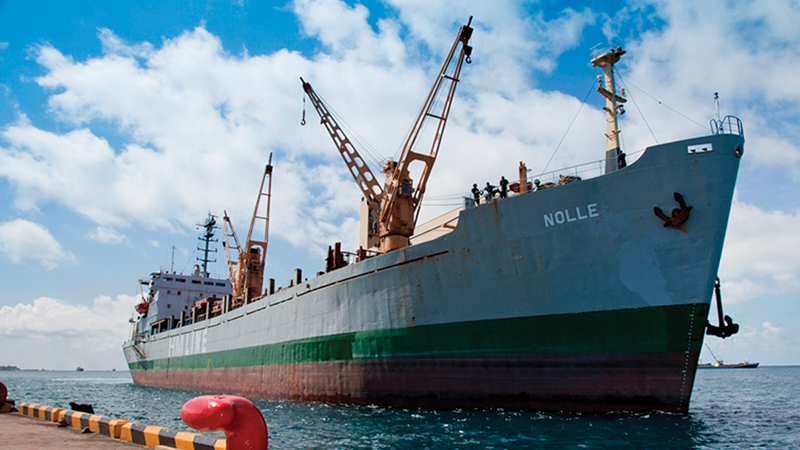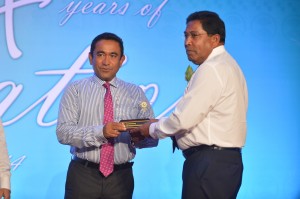US-based Boston Consulting Group (BCG) has launched the first phase of the iHavan project feasibility study.
Economic development minister Mohamed Saeed said yesterday that a team of specialists from BCG has started the “traffic-modelling” for the project, which he said is one of seven components to be completed in three months.
The government hired BCG as a project consultant in November last year.
Saeed told Haveeru that the American company will conduct a detailed study to determine how the components proposed by the government could be developed. The company will consult with boat building, bunkering, and docking companies, he said.
“Then we will know how a cruise terminal, bunkering, and docking can be developed in the Ihavandhippolhu seven degree channel,” he was quoted as saying.
The Ihavandhippolhu Integrated Development Project (iHavan) envisions the development of a special economic zone (SEZ) with relaxed regulations and tax incentives in the Maldives’ northernmost atoll.
The project involves the development of a transhipment port, an airport, offshore docking and bunkering facilities, an export processing zone, real estate businesses, and tourism facilities.
The iHavan project is also one of the government’s five ‘mega projects’ launched at an investment forum in Singapore last year. Earlier this month, a group of Saudi Arabian investors reportedly visited Ihavandhippolhu.
The Saudi Arabian government has also provided US$1 million as grant aid to finance the feasibility project.
Saeed has previously said that he Maldives could capitalise on its strategic location and the “trillions of dollars” worth of trade that passes through the seven degree channel.
The project also proposes to take advantage of more than 30 large cities which lie within a 4000km radius of the atoll as an export processing zones established in iHavan will enjoy duty free access to 1.7 billion people under the South Asian region the South Asian Free Trade Arrangement (SAFTA).
In March, the government signed a Memorandum of Understanding with Dubai Ports World to relocate the central commercial port from Malé to the industrial island of Thilafushi and develop the port as a free trade zone.
The government said at the time that a joint venture agreement will be signed with the global marine terminal operator in a month, but negotiations appear to have stalled.
The opposition has criticised the government’s failure to attract significant foreign investment despite assurances with the passage of the SEZ Act in August last year.
The government estimates that it will collect US $100 million in acquisition fees from the SEZs by August 2015.
Tourism minister Ahmed Adeeb told Minivan News in April that the government is “looking for serious investors,” noting that the minimum investment for a SEZ stands at US$ 150 million.
“I think we will meet budget targets. Some investors are prepared to pay a US $100 million acquisition fee on a single project,” he said.
The first SEZ project is likely to be the Thilafushi port project with Dubai Ports World, Adeeb said, followed by the iHavan project.


